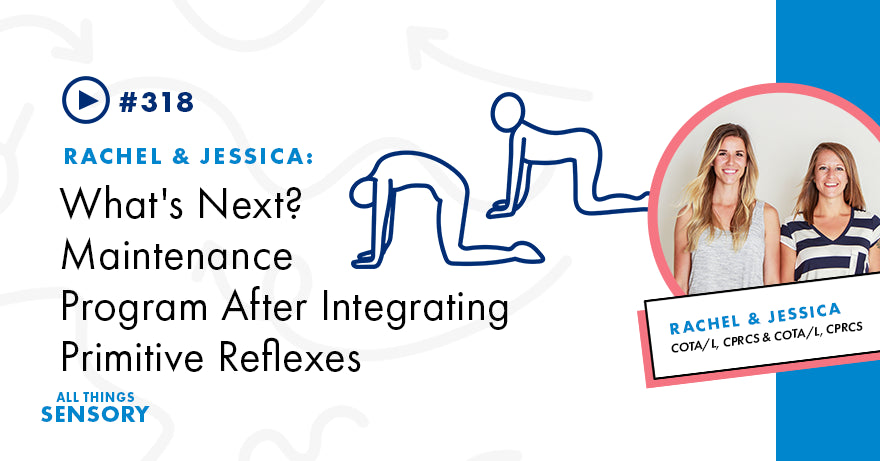Your Cart is Empty

oday we’re answering a question that we received from Instagram: “Can you talk about the end point of reflex integration work. What does that look like?”
We chat about what a reflex integration program looks like and how to create a “maintenance” program afterwards.
Be sure to check out all of the links below!
Free Primitive Reflex Webinar
Full Primitive Reflex Digital Course
We’d love to answer your questions on the podcast! Fill out this form -> https://harkla.typeform.com/to/ItWxQNP3
All Things Sensory Podcast Instagram
Harkla Website - Shop Sensory Products!
Primitive reflex integration is a foundational aspect of child development, helping to address primitive reflexes that, if retained beyond infancy, can impact a child's functional abilities. Completing a reflex integration program is a significant achievement, but it doesn't necessarily mean the journey's end, and you should consider your post-program options.
Primitive reflex integration programs assist children in overcoming retained primitive reflexes, which can hinder essential daily activities such as reading, writing, and physical coordination. Successful integration can improve focus, motor skills, and overall behavior.
Just as regular exercise maintains physical health, ongoing reflex integration activities can support the brain's neural pathways. A maintenance plan could include incorporating specific exercises into the child's routine, even if only a few times a week.
Exercises from a child's primitive reflex integration program should be part of their daily routine. Simple actions like crawling or specific movements stimulate brain-body connections, promoting overall development and well-being.
Life can bring unexpected challenges, such as emotional stress or physical trauma, which might cause previously integrated reflexes to resurface. In such cases, having the tools and knowledge to revisit reflex integration activities can be crucial.
Understanding each exercise's purpose and long-term benefits can help parents maintain motivation and consistency. For therapists, it's about providing ongoing support and adapting the program to meet the child's evolving needs.
Many families have seen transformative results from primitive reflex integration programs, not just in children but also in adults. The benefits range from improved concentration and coordination to better emotional regulation.
As we continue to learn and grow in this field, sharing success stories and experiences can provide valuable insights and encouragement to others on similar journeys.
BORING, BUT NECESSARY LEGAL DISCLAIMERS
While we make every effort to share correct information, we are still learning. We will double check all of our facts but realize that medicine is a constantly changing science and art. One doctor / therapist may have a different way of doing things from another. We are simply presenting our views and opinions on how to address common sensory challenges, health related difficulties and what we have found to be beneficial that will be as evidenced based as possible. By listening to this podcast, you agree not to use this podcast as medical advice to treat any medical condition in either yourself or your children. Consult your child’s pediatrician/ therapist for any medical issues that he or she may be having. This entire disclaimer also applies to any guests or contributors to the podcast. Under no circumstances shall Rachel Harrington, Harkla, Jessica Hill, or any guests or contributors to the podcast, as well as any employees, associates, or affiliates of Harkla, be responsible for damages arising from use of the podcast.
Keep in mind that we may receive commissions when you click our links and make purchases. However, this does not impact our reviews and comparisons. We try our best to keep things fair and balanced, in order to help you make the best choice for you.
This podcast should not be used in any legal capacity whatsoever, including but not limited to establishing “standard of care” in a legal sense or as a basis for expert witness testimony. No guarantee is given regarding the accuracy of any statements or opinions made on the podcast.
Comments will be approved before showing up.